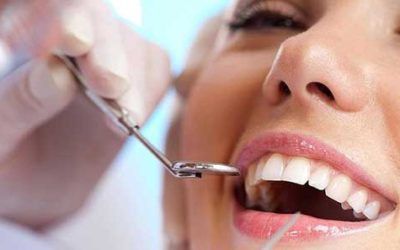Consuming sugar substitutes in lieu of sugar is an excellent choice for your body’s over-all health and functionality. But are they good for your teeth? As you well know, consuming sugar can lead to tooth decay and cavities. However, according to the science division of the American Dental Association sugar itself is not the cause of tooth decay and cavities.
In reality, dental caries are caused by the bacteria in dental plaque that thrive on sugar. As a byproduct the sugar eating bacteria produce an acid that eats away at tooth enamel which causes decay and eventually cavities. Sugar substitutes don’t have the same effect because oral bacteria can’t metabolize them like they do sugar. In fact, polyols, a family of sugar substitutes actually have anti-bacterial properties.
Also known as sugar alcohols, the members of the polyol family include sorbitol, maltitol, isomalt, and of course, xylitol. These naturally occurring sweeteners are derived from fruits, vegetables, and plant fibers. However not all polyols are created equally. In many clinical studies it has been confirmed that xylitol has superior oral benefits.
Aside from preventing the production of bacterial acid, xylitol also assists in keeping a neutral pH level in the mouth. These two effects of xylitol work hand in hand to stop acid-producing bacteria in their tracks. When the pH level of saliva and plaque do not fall, no acid is formed. Also, because oral bacteria cannot break down and metabolize xylitol, the amount of acid-producing bacteria may potentially decrease by as much as ninety percent.
In addition to xylitol’s impact on the population of acid-producing bacteria and their byproduct, xylitol is also capable of repairing damaged tooth enamel in certain applications. As an ingredient in oral care products that stimulate saliva such as chewing gum, tooth paste, and oral rinse, xylitol can help to revitalize damaged enamel. When xylitol helps to stabilize the pH balance and is contained in saliva, calcium and phosphate salts begin to fortify weakened enamel.
There is nothing to worry about in choosing xylitol as a sugar substitute. In fact by making the switch to xylitol, you may be able to reverse some of the damage that was there before.
Related Articles
Documents Found Show Sugar Industry Shifted Blame to Fat
New documents recently found show the sugar industry paying researchers to hide effects of sugar on heart disease. During the 1960s, scientists promoted saturated fat as one of the leading causes of heart disease. According to recently found...
Is Your Dentist Recommending Xylitol? Why Not?
Xylitol is the most effective way of preventing tooth decay we know of.
Does Xylitol Make a Good Sweetener?
Health conscious people recognize that sugar and artificial sweeteners present serious problems for your body. Over the years, artificial sweeteners have been linked to everything from neurological disorders to cancer, and more. While the results of these studies are...
Great Ways to Use Xylitol as a Sugar Substitute
Xylitol sugar substitute options are almost endless. If you’ve never used xylitol, then you are in for a treat, literally! The different ways that you can use xylitol is nothing short of amazing. Let’s take a look at why this natural sweetener deserves a place in any...
Xylitol in the Diabetic Diet
The author this paper, H. Mehnert, is a German diabetologist who helped promote the use of implantable insulin pumps more than 40 years ago. He realized how much of a problem has come from our overuse of foods that contain sugars or, like...
The Benefits of Gum with Xylitol
The health and dental benefits of xylitol are numerous and, in fact, are so impressive that many people are left shocked. What is it about xylitol that makes it so beneficial? Why is xylitol such a perfect ingredient for gum and other dental...









